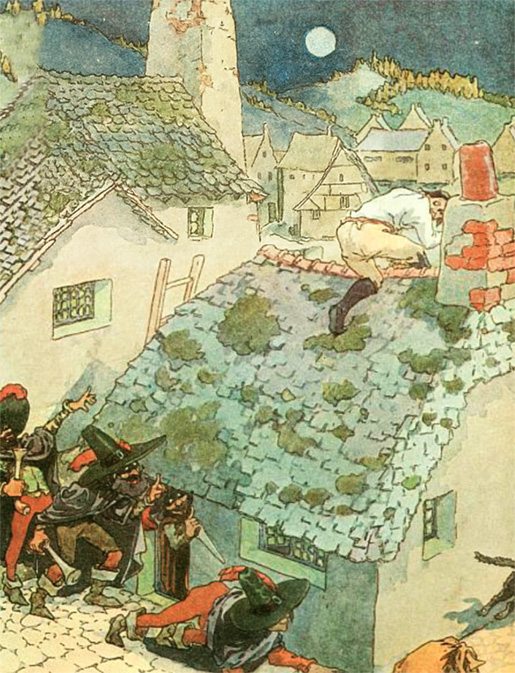There Was a Man and He Had Naught
There was a man and he had naught,
And robbers came to rob him;
He crept up to the chimney top,
And then they thought they had him.
But he got down on the other side,
And then they could not find him;
He ran fourteen miles in fifteen days,
And never looked behind him.

Where It Came From
The rhyme showed up in James Orchard Halliwell’s Nursery Rhymes of England in the 1840s. Halliwell was basically the guy who went around collecting odd scraps of verses before they disappeared, so without him, this one probably wouldn’t have survived at all. It doesn’t look like a game rhyme or a lullaby — more like a small fireside tale chopped down into verse. Nobody knows how far back it goes before Halliwell wrote it down.
Meaning
If you’re looking for morals here, you’ll be disappointed. It’s nonsense — and that’s the whole charm.
-
The man has nothing, so the robbers were wasting their time.
-
He escapes by crawling up the chimney, which is ridiculous but vivid.
-
The payoff is the punchline: fourteen miles in fifteen days, and he’s still too nervous to glance back.
The humor is obvious — he’s in “danger,” but the real joke is how slow and silly he is. It’s the kind of thing that sticks in a child’s head because it’s exaggerated to the point of absurdity.
Why It Lasted
Rhymes like this didn’t survive because they were useful; they survived because they were funny. The rhythm made them easy to recite, and kids no doubt giggled at the idea of a man who could only crawl a mile a day. Compared to the neat, polished rhymes everybody knows, this one feels scrappy — but that roughness is part of what makes it memorable.

